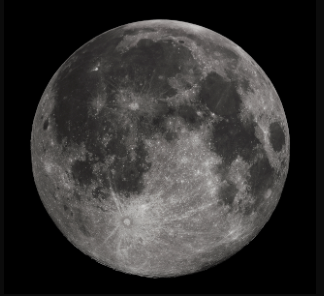Dear
targetharvard,
I'm happy to respond.

You have a most intriguing screenname.

For #2, you correctly eliminated (A), (B), and (E). Let's talk about (C) & (D). Of course, the passage itself says virtually nothing about Earth's Moon.
C. most of the features can be best explained by a single all-encompassing eventThe idea of a "
single all-encompassing event" sounds a lot like "
catastrophic, planet-wide changes, such as the Biblical idea of Noah's Flood." This is precisely what geologists have fought most vigorously--the catastrophist model. We are told that, besides possible the special case of Venus, everything else in the Solar System can be explained with the gradualist model. Thus, we know quite clearly this answer is incorrect.
D. the uneven pattern of cratering indicates different regions of surface are different agesYour comment:
Though the converse is said for Venus. I am unsure as to how this was deduced for the Moon. The Gradualism Model states that all the other planets and moons keep undergoing gradual change.First of all, yes, clearly this is converse for what was said for Venus: same cratering over whole surface means the surface is all the same age, so different patterns of cratering in different places means different areas of surface are different ages.
I would say: be very careful about what assumptions you impose on the reading. Consider these two view of Gradualism:
(a) All changes in geology can be explained by gradual changes, and all these changes are still happening at the same rate
(b) All changes in geology can be explained by gradual changes, even if most changes have come to an end
Notice that the passage doesn't address this difference, so we can't say that it definitely means one or the other. In fact, it suggests that both can be true, depending on the planet or moon. (In scientific fact, (a) is true for Earth and (b) is true for the Moon.)
Furthermore, why would different surfaces of different ages not be due to gradual changes? Let's say that at some point in the far distant past, the Moon had some surface that was pock-marked by craters during a period when cratering was heavy. Then, the rate of cratering abated. Then the Moon had some big volcanos, that spilled a bunch of lava over some places, covering the craters there. All of these are gradual changes--that is changes dependent on specific local events (one crater, one volcano) happening at different times rather than catastrophic all-at-once events that involve the entire planet or moon.
(BTW, in our best understand of astrophysics, this is more or less what happened to the Moon: the darker "seas" of lava and the lighter cratered areas is what is responsible for the dark & light regions that create the "man in the moon" appearance.)
Attachment:
 Moon.png [ 101.93 KiB | Viewed 15666 times ]
Moon.png [ 101.93 KiB | Viewed 15666 times ]
Overall,
(D) is the strongest answer for #2.
Now, #4, evidence against Turcotte's model:
A. the success of gradualist models explaining the surface of Marsyour comment:
I chose this one as this would go against the catastrophic model which is being advocated by TCIt seems reasonably clear that Turcotte knew that what he was proposing for Venus was an entirely different model that what was explained everything else. Certainly since this was the primary objection to his model, he would have been aware that he was saying, essentially, that the way Venus works is different from the way anything else works. People who propose ideas & models are usually made aware, quite quickly, of the principal objections to that model.
Thus, Mars, like everything else in the solar system except Venus, follows the gradualist model. That's no surprise to Turcotte. He is quite specific proposing that Venus is different from everything else, so the fact that Mars is different from Venus is entirely expected.
D. a few active volcanoes on Ishtar Terra, a continent on Venusyour comment:
Can you please explain how this would go against the TC Model. I can not seem to wrap my head around this oneOnce again, let's get clear on the two models.
Catastrophist = geological features are shaped by planet-wide, all-at-once events, big events that act everywhere at the same time
Gradualist = geological features are shaped by individual events, different things happening in different places at different times, each affecting only one small part of the surface at a time.
Turcotte's theory is that Catastrophism 100% explains Venus' surface. If we have a few volcanos in one particular place on Venus, that's not a planet-wide event, but instead a local event--that would show that the gradualist model is required to explain at least that part of the surface. That's a contradiction.
Also, consider this part of the passage:
While the surface is fixed, volcanic pressure builds up inside the planet. At a certain point, the pressure ruptures the surface, and the entire planet is re-coated in lava in a massive planet-wide outburst of volcanism. Thus, his model is that no heat escapes during the "fixed surface" phase, and then a lot escapes all at once during the "planetary meltdown" phase--in other words, 0% planet-wide heat-release, and then 100% planet-wide heat release, a catastrophist model. Well, if there are a few volcanoes, they are letting out a small amount of heat at a particular place--in other words, the heat is being released
gradually at these sides, rather than all-at-once on the planet-wide scale. That would be a big contradiction of Turcotte's model.
Overall,
(D) is the strongest answer for #4.
Does all this make sense?
Mike








